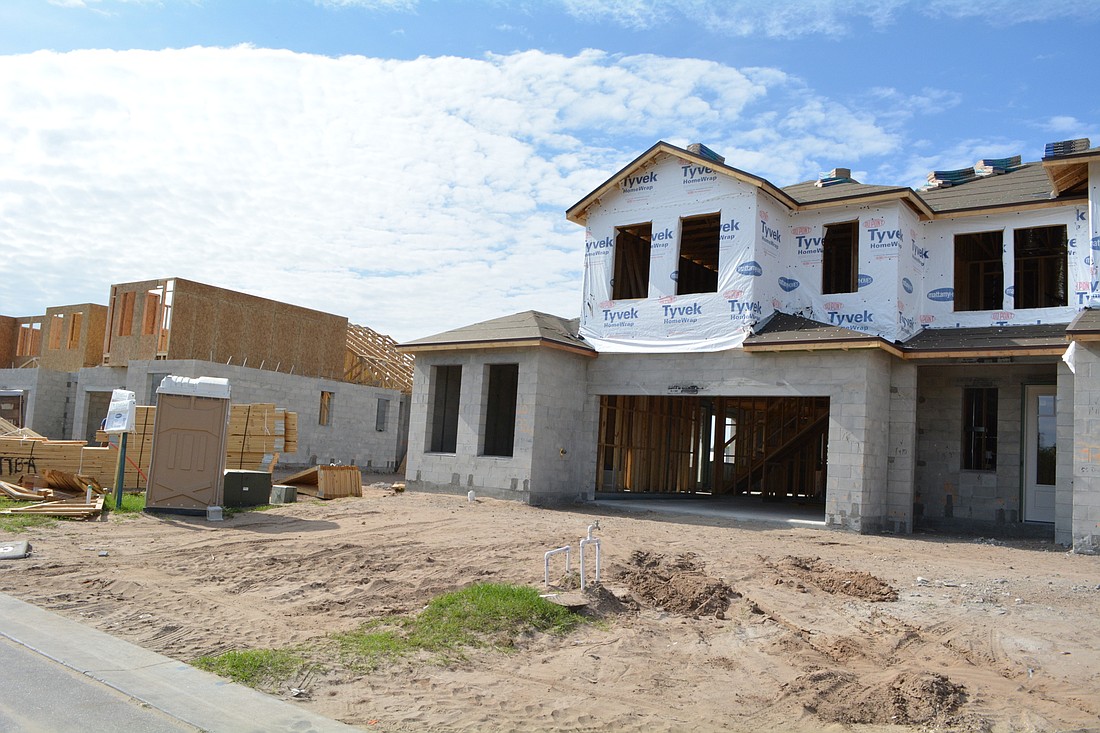- November 26, 2024
-
-
Loading

Loading

As Sarasota County commissioners and staffers begin talking about the next fiscal year’s budget, they heard from an economic expert last week with a word of warning, even though many of the county’s financial benchmarks are at near-record levels.
Sean Snaith, the director of the University of Central Florida’s Institute for Economic Forecasting, told commissioners that hardly anything in the financial world is as it should be, and he attributes a lot of that to actions taken over the 26 months of the COVID-19 pandemic.
Then again, he said, while much of the recent “layer cake of economic problems” can be traced back to March 2020, he’s seen nearly two decades of unexpected economic performance.
"I keep waiting, I say this time and again, I keep waiting for things to normalize in the economy, and it’s been 18 years since it’s been what I might classify as normal," Snaith told commissioners in last week’s budget workshop.
Of late, he pointed to an 8.3% inflation rate, difficulties in the labor market and in manufacturer’s supply chains and rising energy bills. He said shutting down all but essential industries in 2020 still have ripple effects now, and the effects then were instantaneous.
"It didn’t seem like there was any thought process in terms of looking at the cost -benefit of doing this when these decisions were made," he said, adding the focus on COVID-19 and the shutdown of schools, businesses and more shifted from two weeks to flatten the curve to "two months to bulldoze the economy."
He said the resulting recession resulted in pent-up demand.
When things reopened, that pent-up demand became actual demand and the economy hasn’t been able to keep up, adding that the influx of trillions of dollars of federal money exacerbated issues, potentially leading to a economic downtown in the next 12 months, though not a deep one.
His forecast calls for a slowing of Florida’s economy from a 6.9% rise in state gross domestic product in 2021 to 4.2% in 2022, 2.8% in 2023 and 2.95% in 2024.
Sarasota’s real metro GDP, he said, will likely slow its growth, moving from $33.3 billion in 2020 to $35.4 billion in 2021, $36.6 billion in 2022, $37.7 billion in 2023 and $38.9 billion in 2024.
"It’s important when you’re doing budgetary planning that, yes, you’re going to be impacted by these budgetary swings," Snaith said, "but I think the problems here you’re challenged with are more long-run in nature."
And, he said, keeping that long run in mind is beneficial, pointing to trends going back to 2010 that track with his forecasts for the future.
"As much as you can keep your eye on the horizon, I think, that’s a prudent way to approach the budget going forward," Snaith said.
The County Commission reviewed a series of budget year milestones as they begin to look ahead to constructing the fiscal year 2023 revenue and spending plan.
Among the high-profile federal and state funding sources for Sarasota County projects: